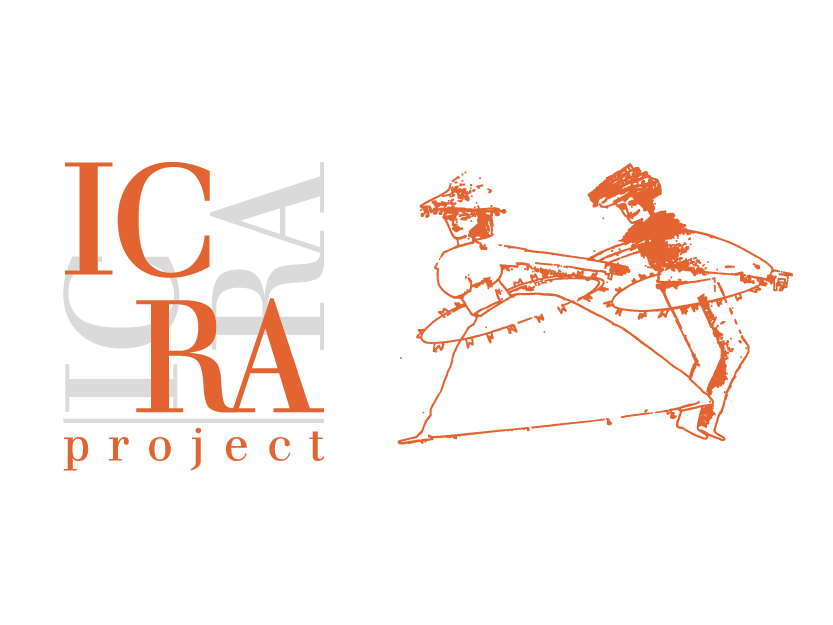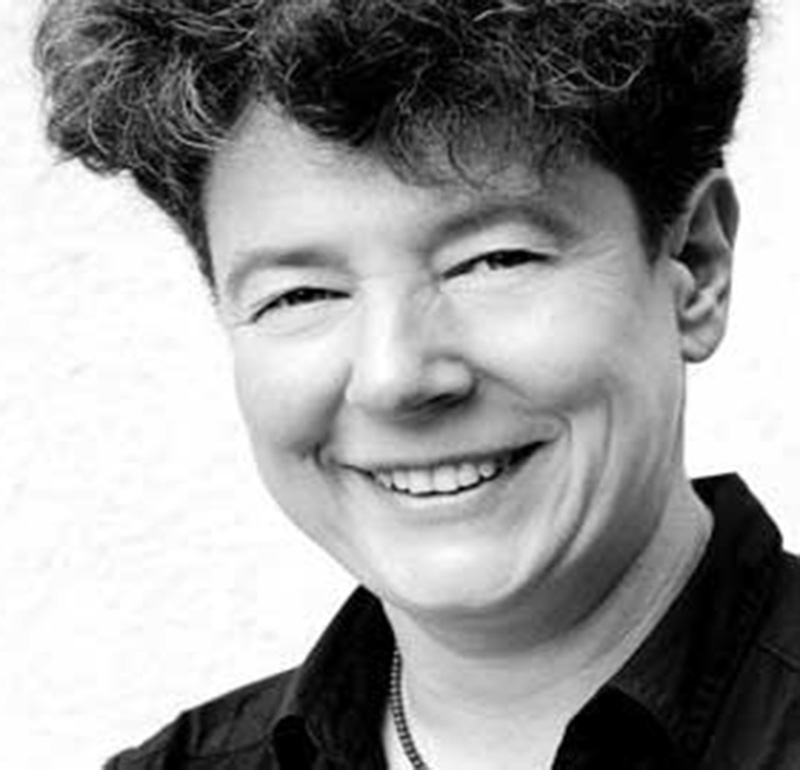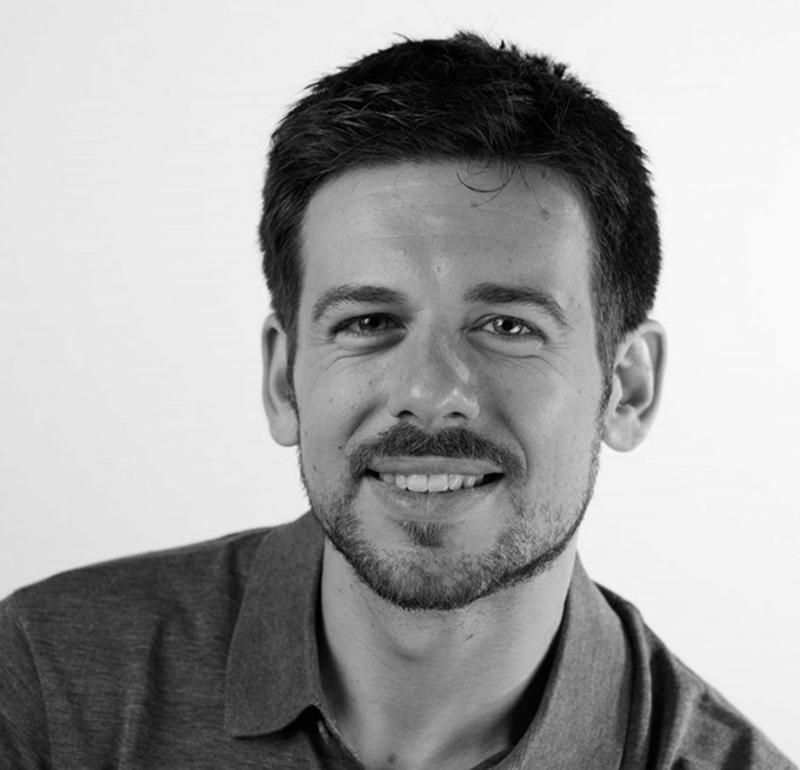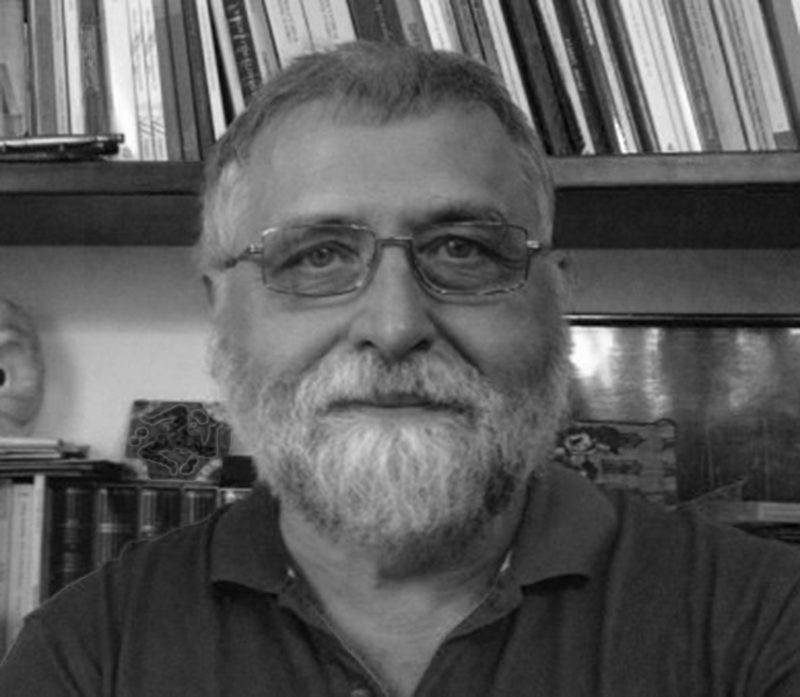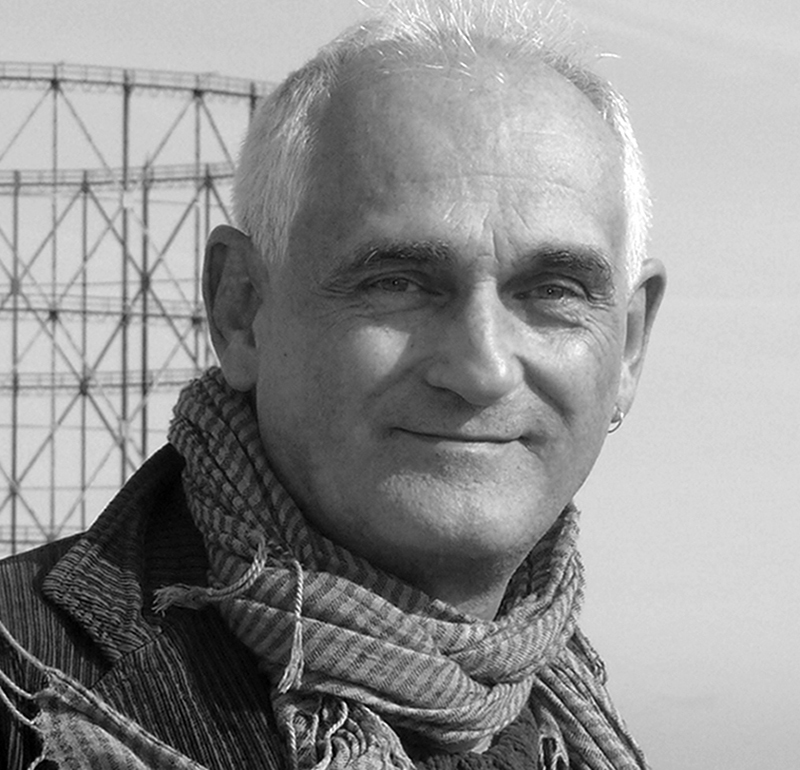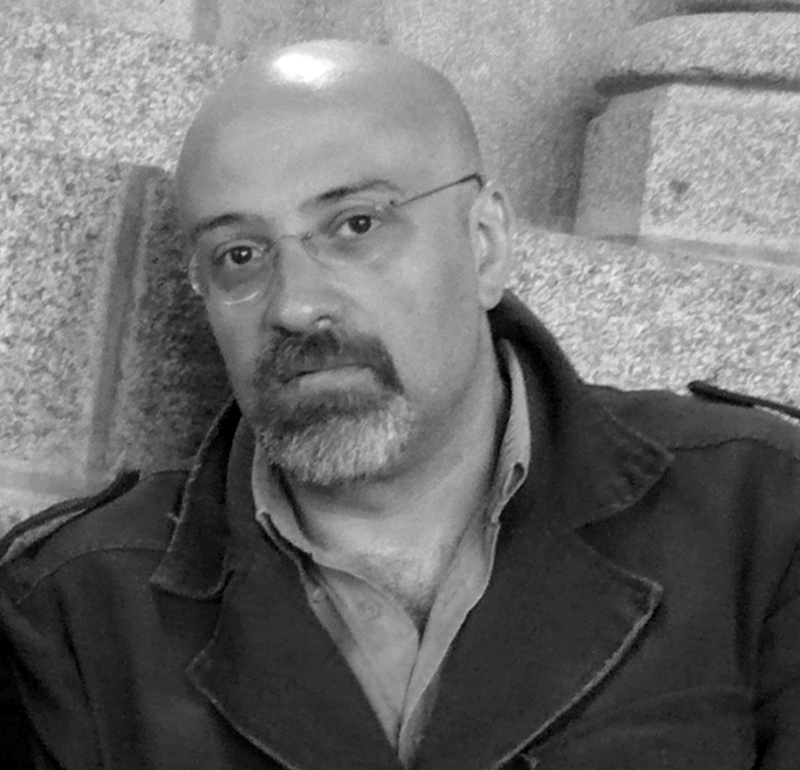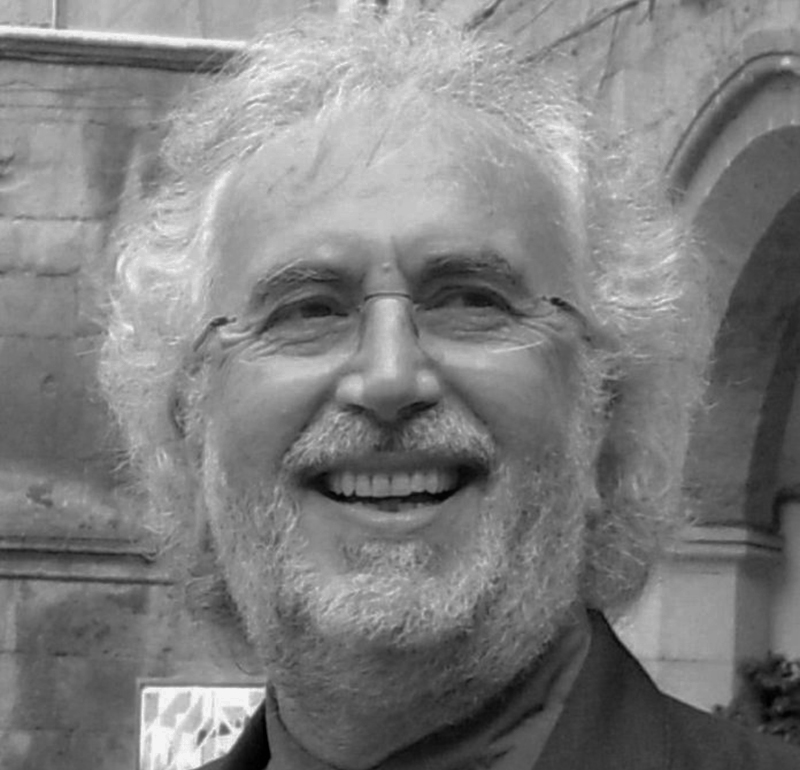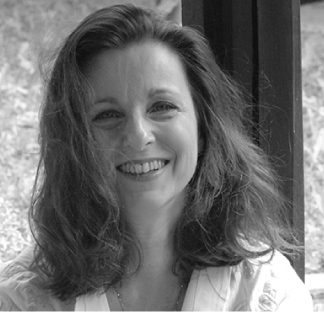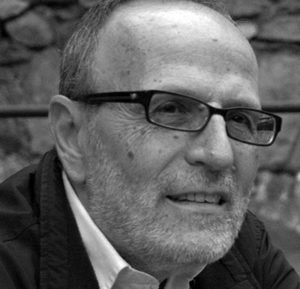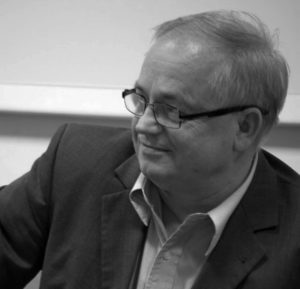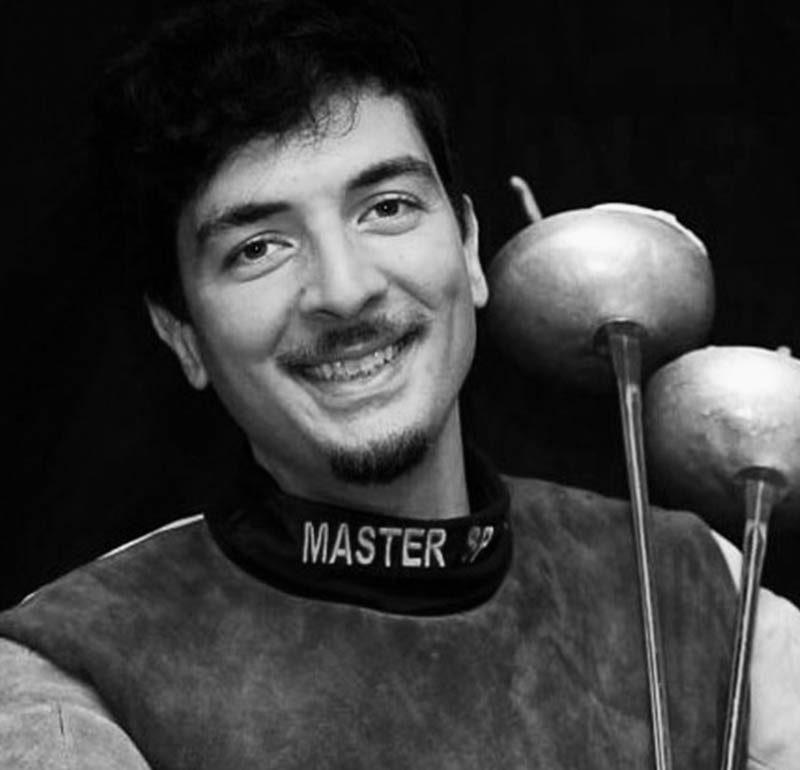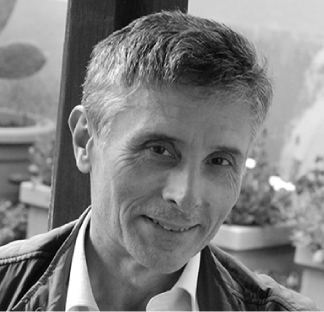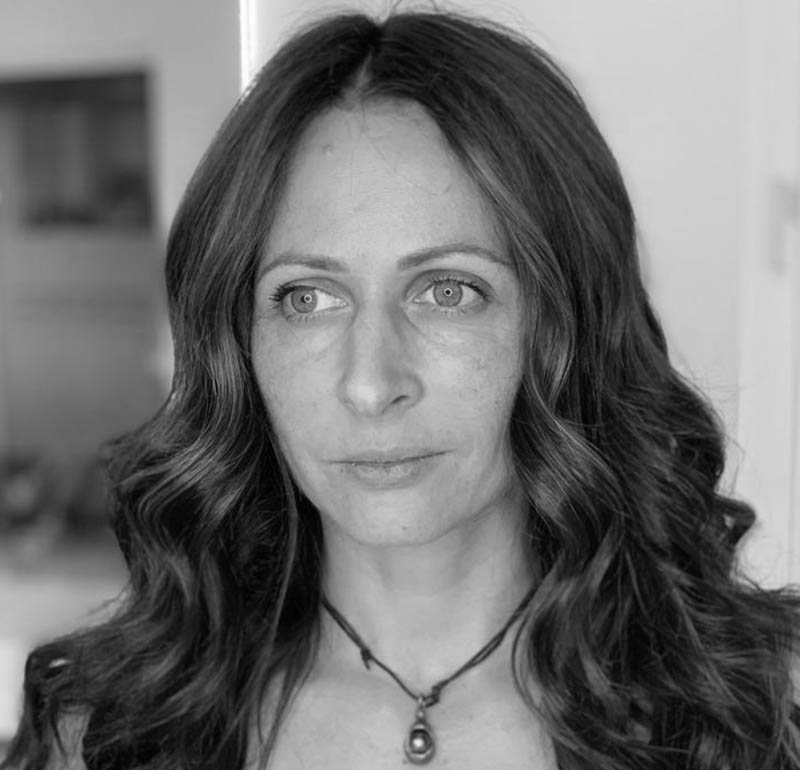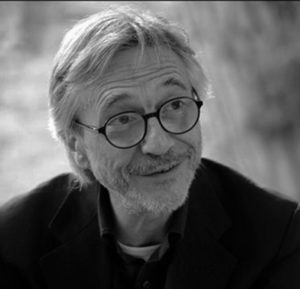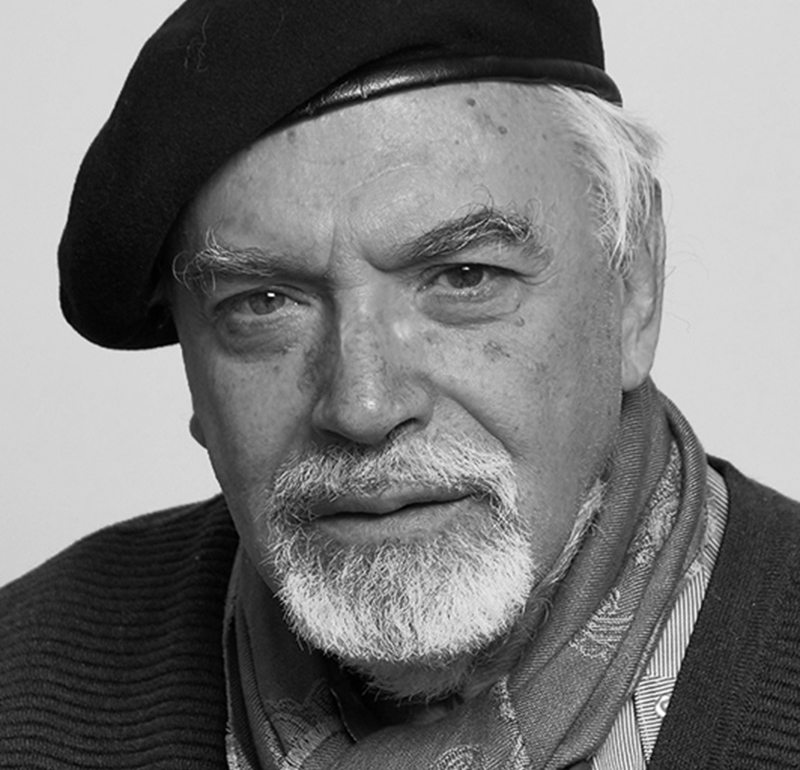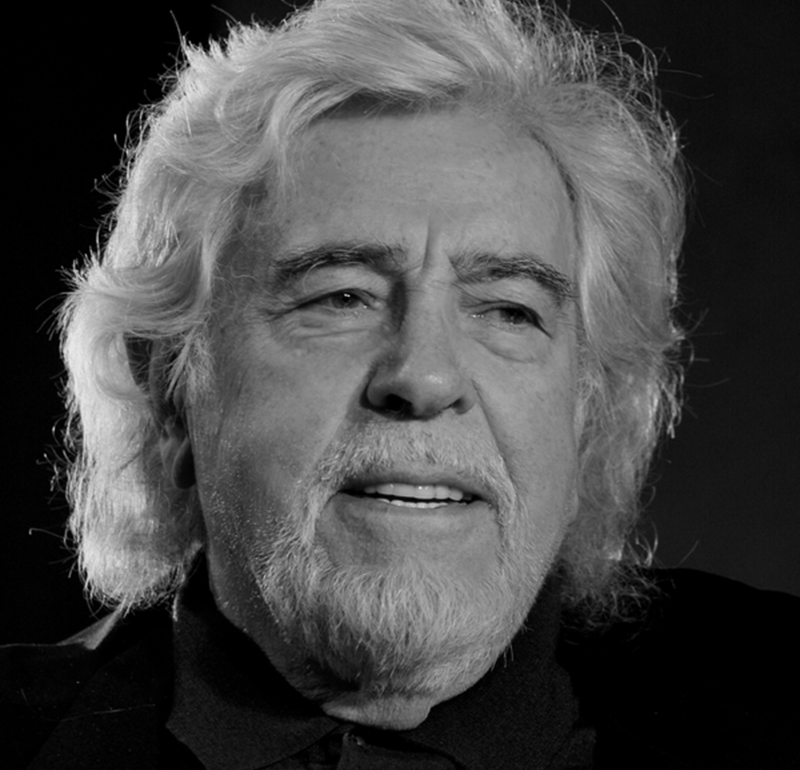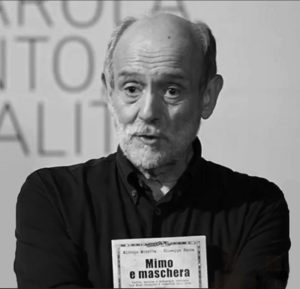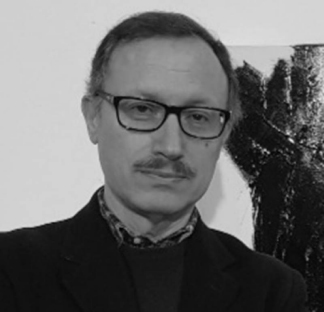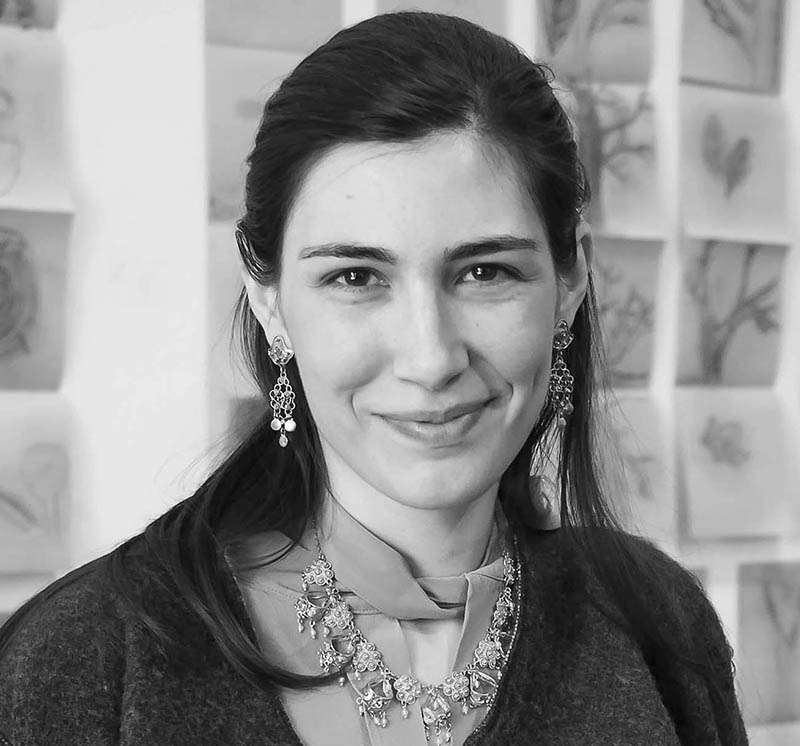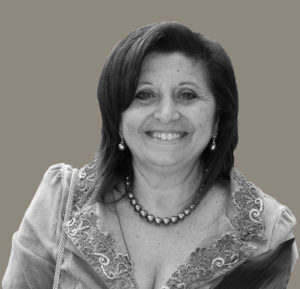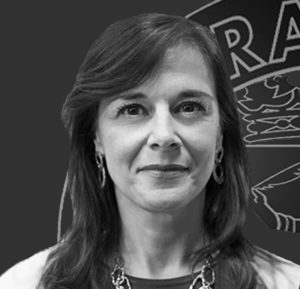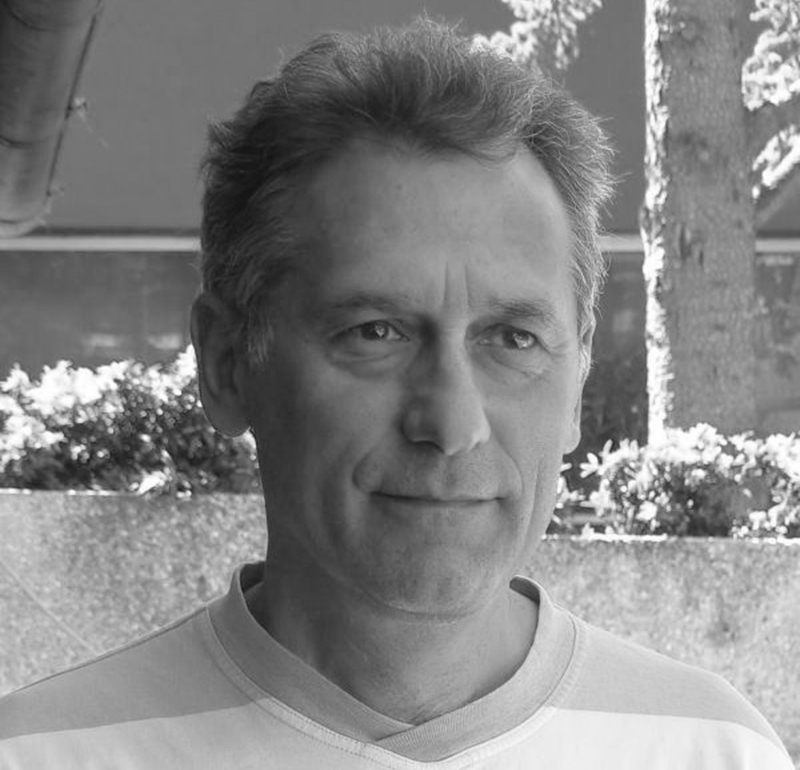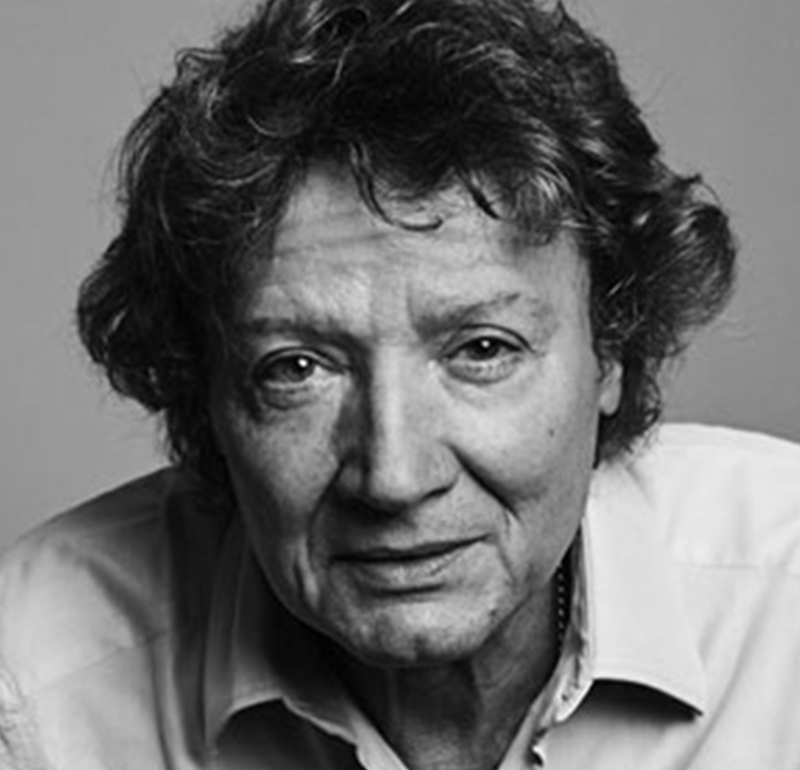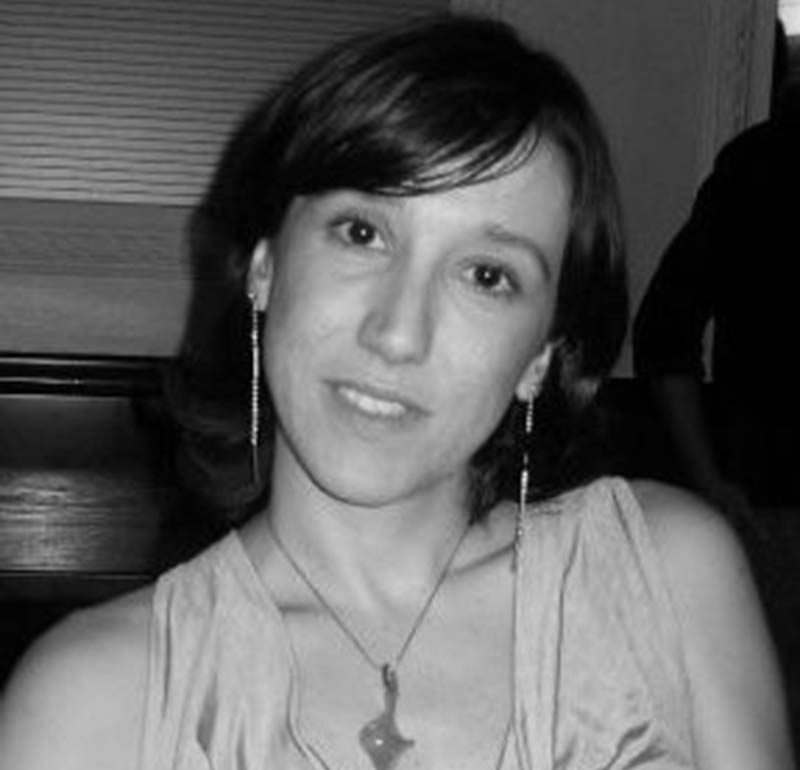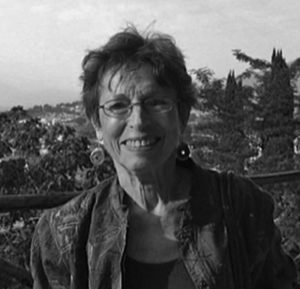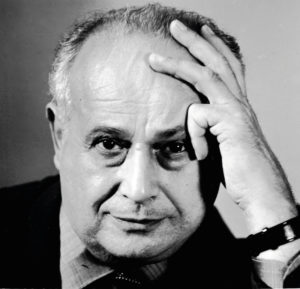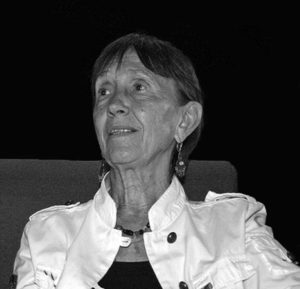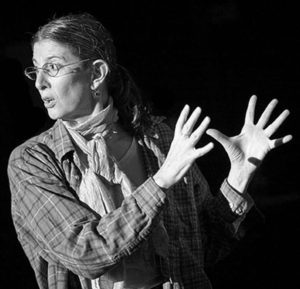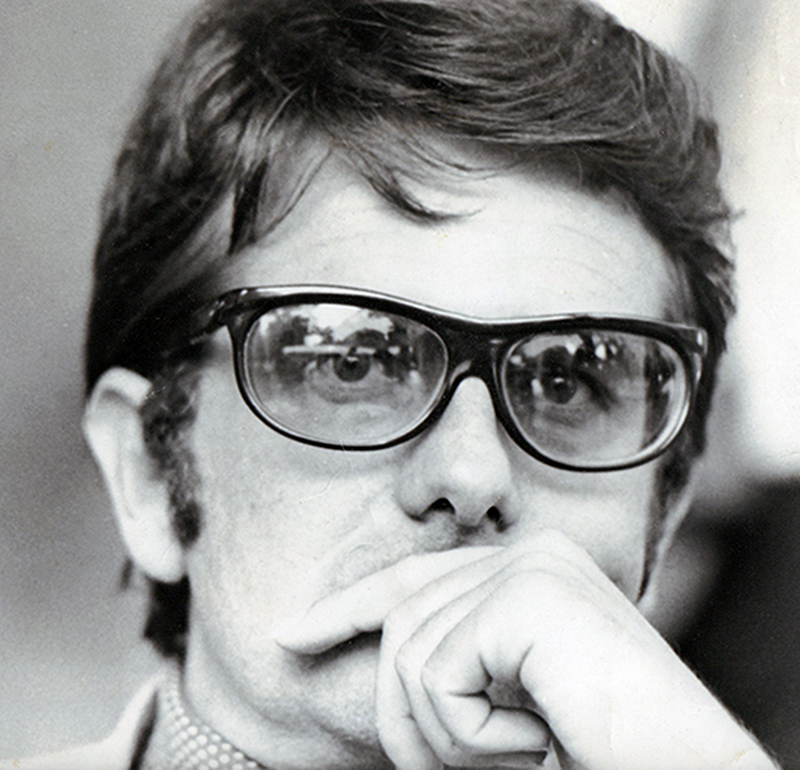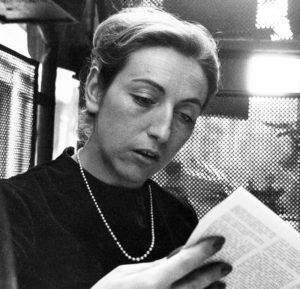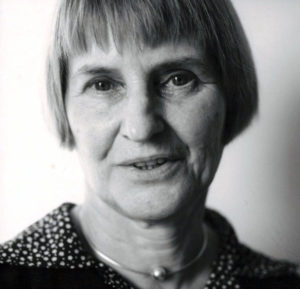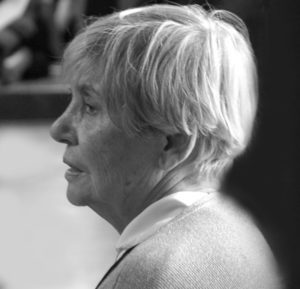Theatre, a permanent revolution
In 1994, artistic directors Michele Monetta and Lina Salvatore laid the first foundations of ICRA Project in Paris during a master class on theatre pedagogy with Monika Pagneux.
The International Centre for Research on the Actor became a reality in 1999 and hosts, develops and coordinates activities on theatre, music, pedagogy of drama, and multimedia languages.
Both directors have extensive international theatre training and experience. By bringing together their training background and their wealth of national and international theatre experience and by combining different disciplines, they developed a teaching technique that integrates movement research inspired by masters such as Decroux, Feldenkrais, Lecoq, and Gurdjieff. The result is a two-year course programme at the Corporeal Mime School that trains young actors in corporeal mime, the Feldenkrais method, theatre fencing, acrobatics, choral singing, voice, performance, as well as experimental montage of texts through the complementary work at the Commedia dell’Arte Workshop and the Expressive Skills and Dramatic Arts Laboratory.
In 2000, Michele Monetta, and Lina Salvatore, his stage and life partner, founded the ICRA Project theatre company that draws inspiration from the natural evolution of the training approach of their Corporeal Mime School as well as from the Expressive Skills and Dramatic Arts Laboratory in order to arrive at the creative process that produces performances with the assistance of other teachers and selected students. This training and production approach is inspired by the great example of Jacques Copeau and his Vieux Colombier theatre where he tried to influence the theatre of his times through an essential and fundamental ethical/aesthetical training of his own student actors.
ICRA Project is rooted in the theatre tradition of the 20th Century and its main goal is quality and value of communication. Communication always occurs when someone narrates and another listens in a space that becomes a place of interaction. ICRA’s growing collaboration with important national and international institutions and universities, marks the beginning of an intense and rich journey of projects, lectures, workshops, courses, video forums, conferences, lecture-demonstrations, refresher courses, and performances.
ICRA Project has carried out regional, national and international projects since 1999. ICRA is officially recognized by the Region of Campania, Department of Tourism and Performing Arts and was recognized by the Italian Ministry of Cultural Heritage and Activities from 2001 to 2015. In addition it enjoys the support of the Italian National Academy of Dramatic Art Silvio D’Amico, Rome, Guildhall School of Music and Drama, London (UK); Escuela de Actores de Canarias, Las Palmas de Gran Canaria (Spain); Lithuanian Academy of Music and Theatre, Vilnius (Lithuania); Russian Institute of Performing Arts, Saint Petersburg (Russia); Chairs of Theatre History of the following universities: University of Bologna (Italy); Pontifical Salesian University, Rome (Italy); Pontificia Universidad Javeriana, Bogotà (Colombia); University of Salerno; Carlo Bo University of Urbino; and Pomona College, Claremont (California, USA).
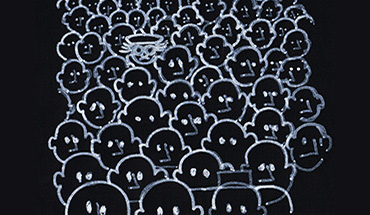
ICRA Projects boasts many important collaborations with artists, teachers, public and private bodies as well as universities and academies such as:
- University of Quebec, Montreal (Canada);
- University of Budapest (Hungary);
- University of Bologna, Department of Arts, Bologna (Italy);
- University of Rome Tre, Rome (Italy);
- École-Atelier Rudra dance school, directed by M. Béjart, Lausanne (Swisse);
- University of Calabria, Department of Arts, Music and Performing Arts, Cosenza, (Italy);
- National Archaeological Museum, Naples, (Italy);
- Archaeological Museum of Succivo, Caserta, (Italy);
- University of Naples Federico II, Naples;
- University of Salerno (Italy);
- University of Lecce (Italy);
- European School for the Art of the Actor of the Teatro di Pisa Foundation,
San Miniato, (Pisa), (Italy); - Teatro di Roma, Rome;
- Tor Bella Monaca Theatre, Roma, (Italy);
- Centro di Ricerca per il Teatro, Milan, (Italy);
- Muse Museum of Pellezzano Salerno, (Italy);
- Escuela de Actores de Canarias,
Las Palmas de Gran Canaria, (Spain); - Po-Most/ Zdarzenia Festival, Danzig (Poland);
- Italian National Academy of Dramatic Art Silvio d’Amico, Rome, (Italy);
- Russian Institute of Performing Arts, Saint Petersburg (Russia);
- Universo Teatro Festival, Benevento, (Italy);
- École supérieure d’art dramatique du Théâtre National de Strasbourg, (France); and
- Guildhall School of Music and Drama, London (UK).
ICRA Project has organized lectures and workshops led by Marise Flach, Piccolo Teatro, Milan; Marco De Marinis, Department of Arts, Music and Performing Arts (DAMS) of the University of Bologna; Nicola Savarese, University of Rome Tre;
Y Wayan Puspayadi, Conservatory of Theatre Arts, Bali; Vera Bertinetti, Morlacchi Conservatory, Perugia; Lorenzo Salveti, Italian National Academy of Dramatic Art Silvio d’Amico, Rome; Peter Sarkany, Lazlo Szend Secondary School, Budapest; Peter Clough, Guildhall School of Music and Drama, London; Edo Bellingeri University of Rome Tor Vergata; and Yuri Krasovsky e Institute of Performing Arts, Saint Petersburg, Russia.
The regular training activities held at the Corporeal Mime School, Expressive Skills and Dramatic Arts Laboratory (LEDA) and the Commedia dell’Arte Workshop, as well as a variety of workshops for actors, teachers and authors have been followed by students from Italy and abroad (Germany, Wales, Spain, Serbia, Japan and Argentina).

ICRA Project has created and produced numerous performances and theatre shows, in particular: Il Cielo obliquo (The Oblique Sky), a theatre performance based on texts by Antonin Artaud (2001), Querelle des Bouffons, from the Commedia dell'Arte to Opera Buffa (2004), Mime Corporel based on texts and exercises by Etienne Decroux (2008) and La Piazza universale (The Universal Piazza), based on texts and iconography from the commedia dell’arte (2008).
ICRA Project also produced numerous performance created and performed by its students such as: Nalpas, based on texts by Antonin Artaud; Le Antigoni (The Antigones) based on texts by Sophocles, Jean Anouilh and Bertolt Brecht (2002); La Lucilla costante (Faithful Lucilla) based on Silvio Fiorillo’s 1632 play (2003); Orfeo (Orpheus) by Poliziano (2004); Dada, by Tristan Tzara, Francis Picabia, André Breton and Philippe Soupault (2005); Assurdo!!! (Absurd!!!), based on texts by Eugène Ionesco (2006); Inscenirovki based on texts by Vladimir Mayakovsky.
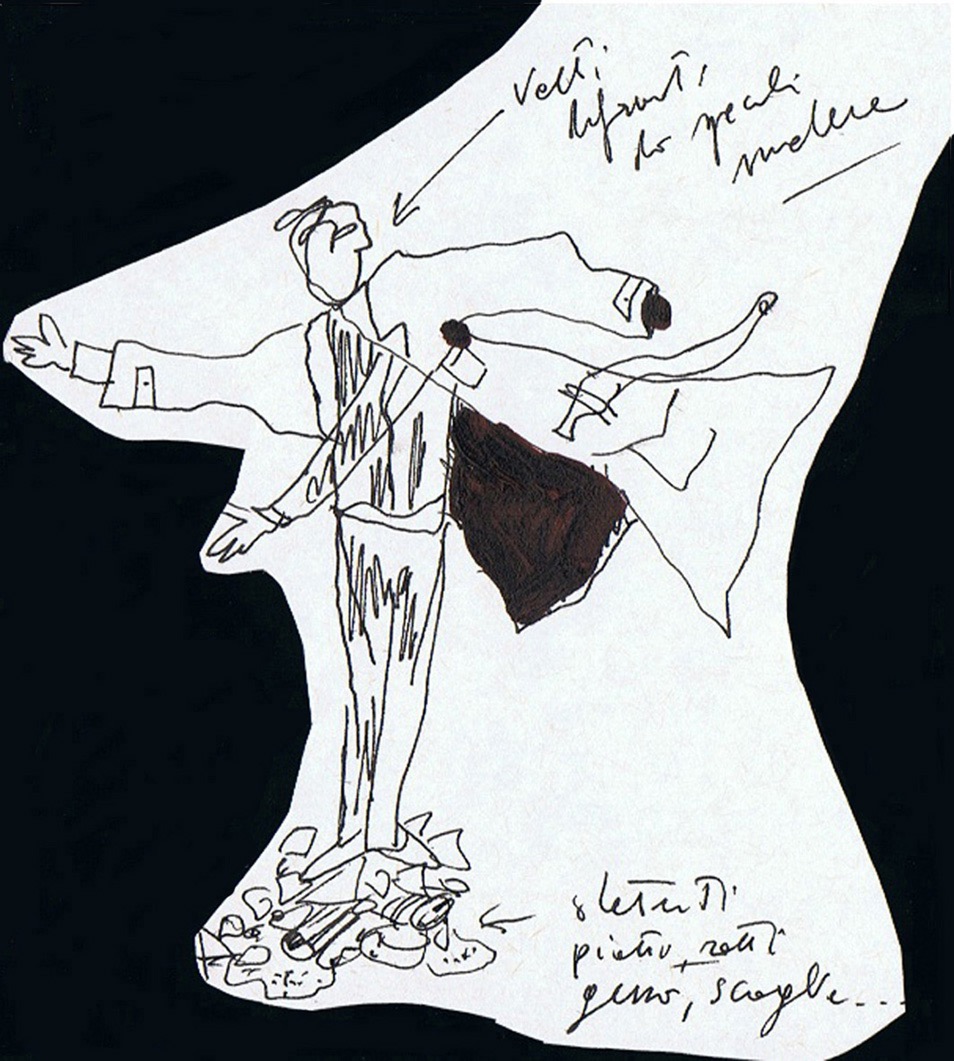
ICRA Project has volunteered to collaborate on various dissertations on theatre for universities and academies in Naples, Bologna, Cosenza, Florence and Palermo, among many. It has also opened an information office/counter to provide students with free advice, counselling and material for their dissertations on history of the theatre, history of art, theatre anthropology, semiotics, aesthetics, architecture, set design, corporeal and movement education, masks and commedia dell’arte, corporeal mime, dramaturgy, and history of dance and music. We are pleased to mention Camilla Bellani’s 2003 dissertation on ICRA Project and its artistic and pedagogical system, which is available from the Department of Arts, Department of Arts of the University of Bologna;.
ICRA Project participates in major national and international festivals with its own shows and pedagogical and training activities, specifically on corporeal mime, commedia dell’arte, masks, and corporeal and stage movement training. ICRA uses it’s own pedagogical system, which is the result of a constantly evolving and changing syncretism of significant and fundamental twentieth-century theatre techniques and methods such as Etienne Decroux’s abstract corporeal mime, the Feldenkrais method, Orazio Costa’s mimetic method, Jacques Lecoq’s work on movement and mask, as well as eurythmy and corporeal coordination inspired by the work of George Ivanovich Gurdjieff and Rudolph Steiner.
ACCREDITATIONS
ICRA has been recognized by the Campania Region since 2001, and by the Italian Ministry of Cultural Heritage and Activities, and Tourism until 2015.
It has been listed in the Register of Private Associations and Institutions of the City of Naples since 2007.
Since 2014, it has been listed in the Register of Private Legal Entities and thus recognised as a private legal personality; registration number: 337.
SUPPORTERS
- Italian National Academy of Dramatic Art Silvio d’Amico, Rome (Italy);
- Guildhall School of Music and Drama, London (UK);
- Escuela de Actores de Canarias, Las Palmas de Gran Canaria (Spain);
- Lithuanian Academy of Music and Theatre, Vilnius (Lithuania);
- Russian Institute of Performing Arts, Saint Petersburg (Russia);
- University of Bologna, Chair of History of Theatre and Performing Arts, Bologna (Italy);
- Pontifical Salesian University, Chair of History of Theatre, Rome (Italy);
- Pontificia Universidad Javeriana, Bogotà (Colombia); and
- University of Salerno;
- Carlo Bo University of Urbino, and
- Pomona College, Claremont (California, USA).
